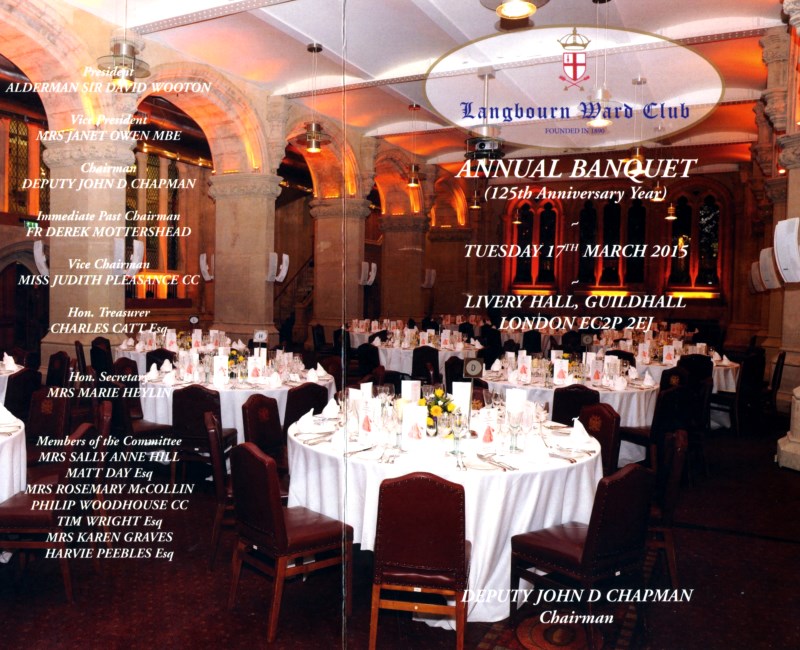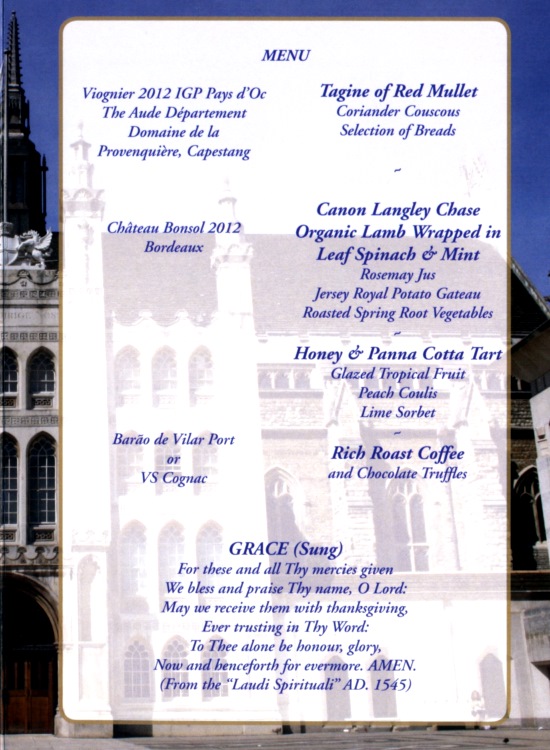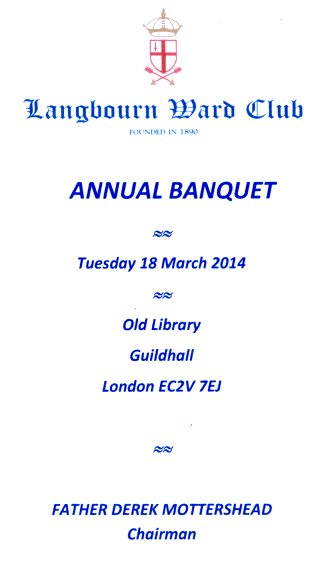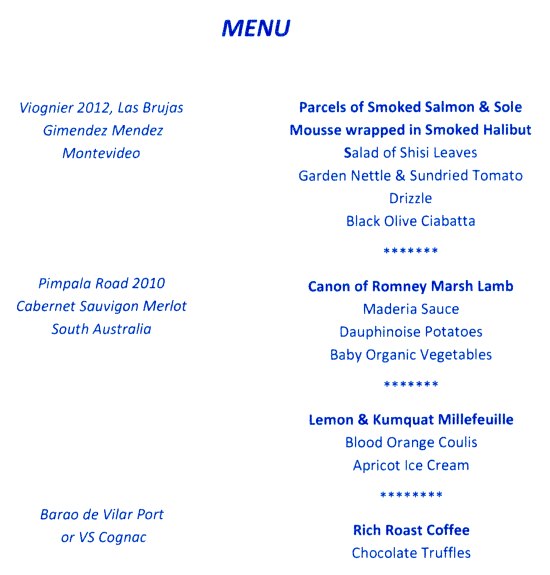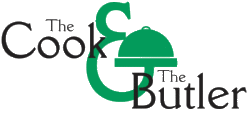
Tel: 020 7620 1818 email: cookandbutler@btconnect.com
Langbourn Ward Club
Banquet Dinner
April 19th 2025, Gresham Street, Guildhall, City of London
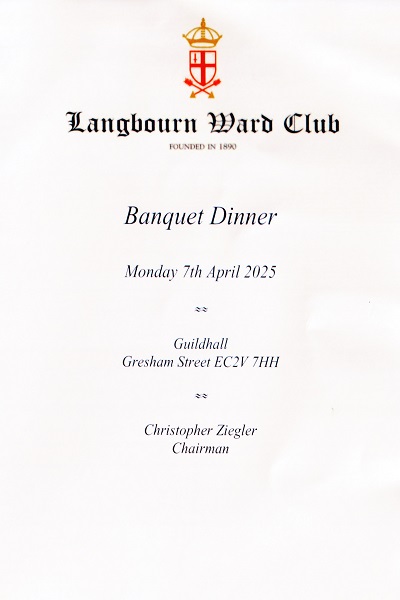
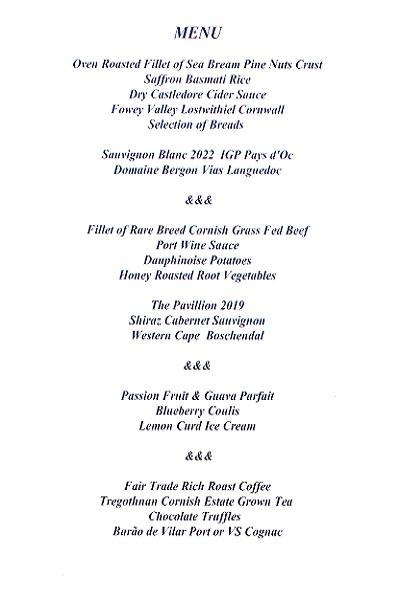
Banquet Dinner
April 7th 2023, Gresham Street, Guildhall, City of London
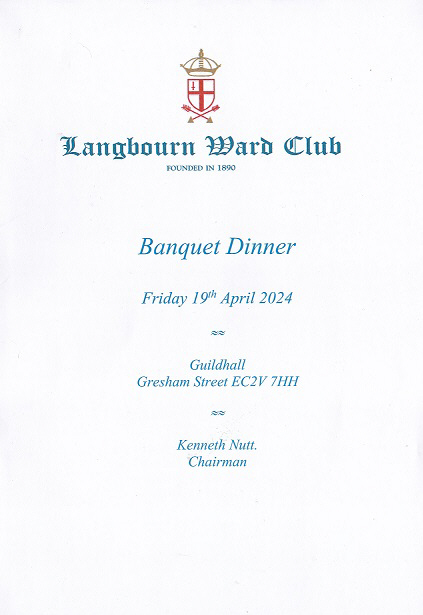
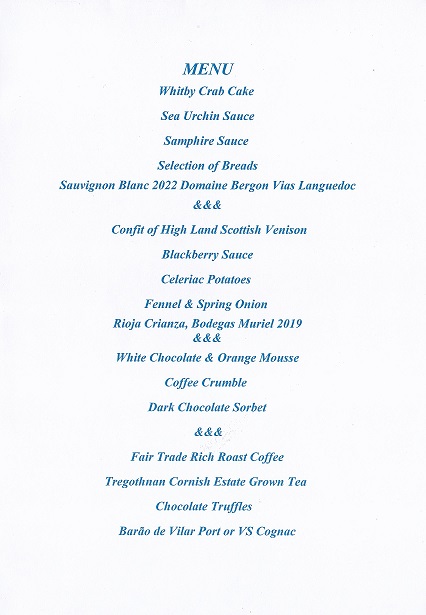
![]()
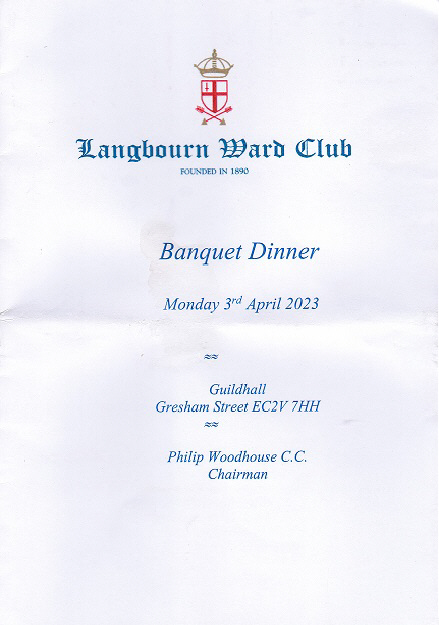
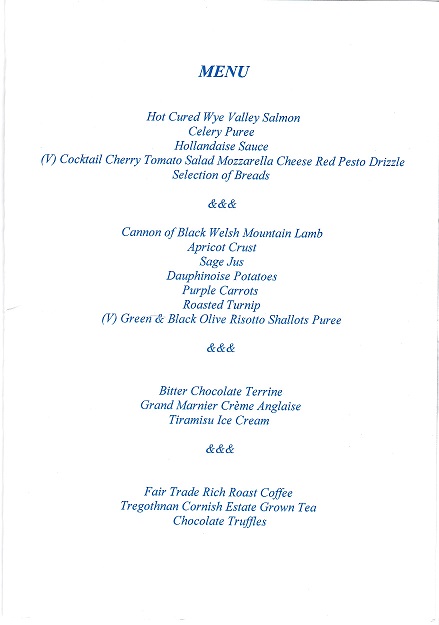
![]()
Annual Dinner
March 2016, The Livery Hall, Guildhall, City of London
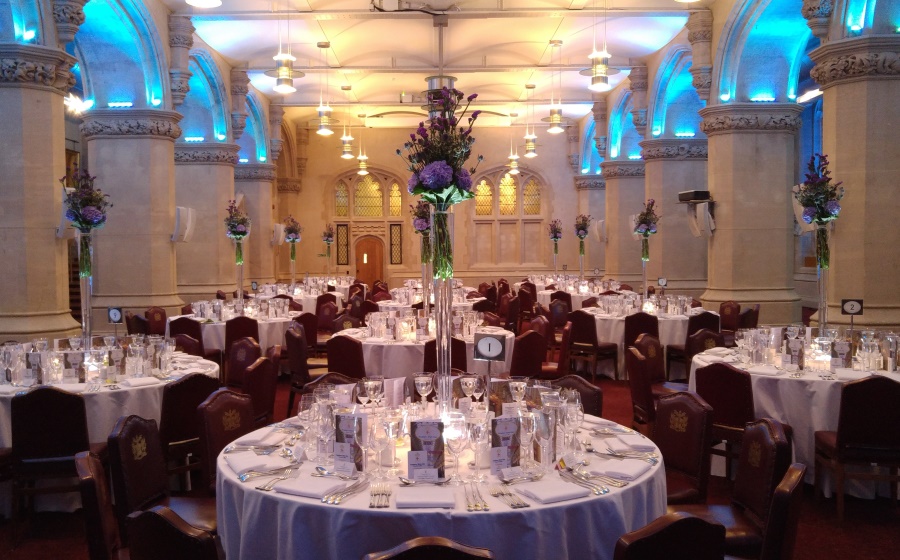
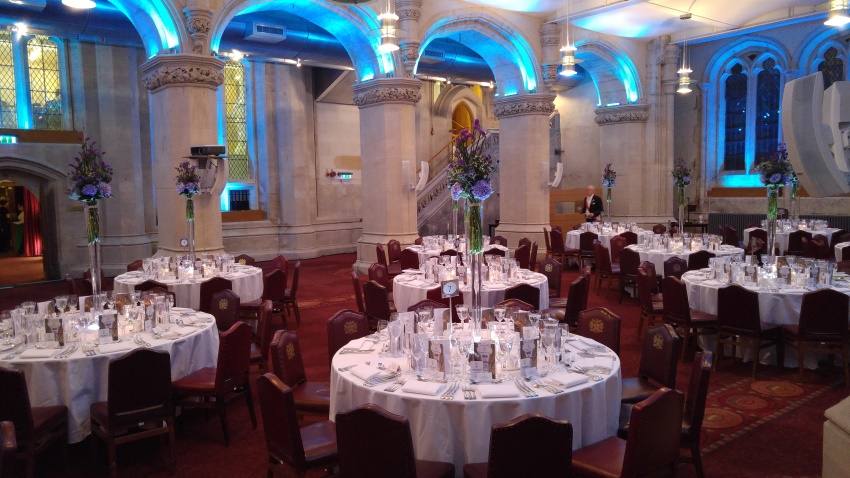
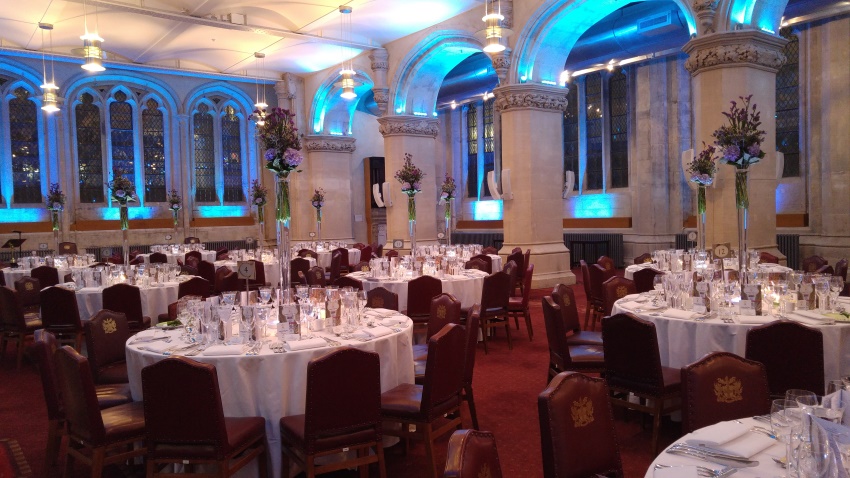
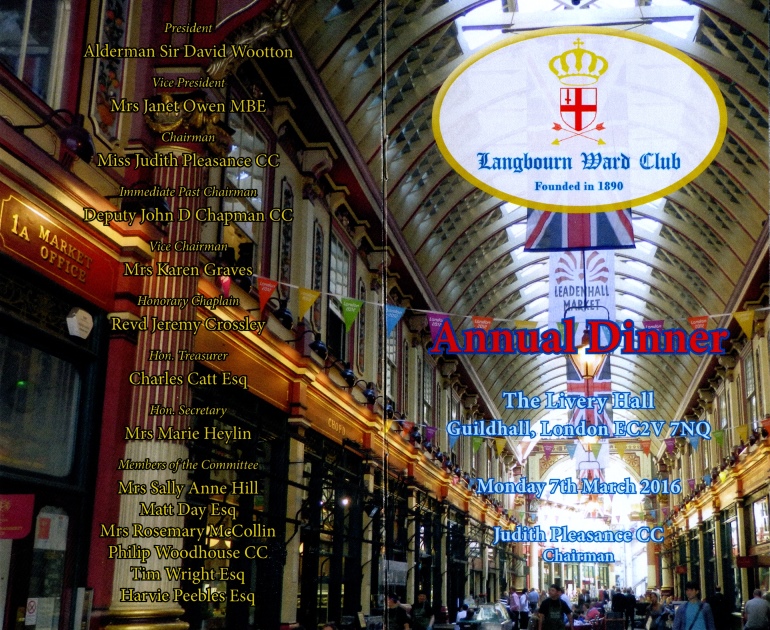
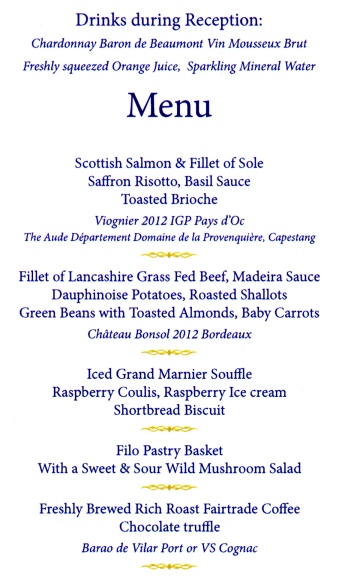
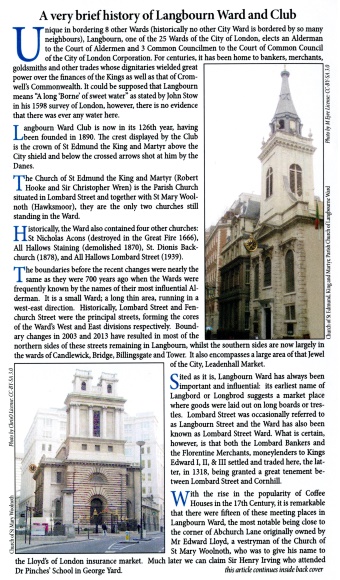

A very brief history of Langbourn Ward and Club
Unique in bordering 8 other Wards (historically no other City Ward is
bordered by so many neighbours), Langbourn, one of the 25 Wards of the City
of London, elects an Alderman to the Court of Aldermen and 3 Common
Councilmen to the Court of Common Council of the City of London Corporation.
For centuries, it has been home to bankers, merchants, goldsmiths and other
trades whose dignitaries wielded great power over the finances of the Kings
as well as that of Cromwell’s Commonwealth. It could be supposed that
Langbourn means “A long ‘Borne’ of sweet water” as stated by John Stow in
his 1598 survey of London, however, there is no evidence that there was ever
any water here.
Langbourn Ward Club is now in its 126th year, having been founded in 1890.
The crest displayed by the Club is the crown of St Edmund the King and
Martyr above the City shield and below the crossed arrows shot at him by the
Danes.
The Church of St Edmund the King and Martyr (Robert Hooke and Sir
Christopher Wren) is the Parish Church situated in Lombard Street and
together with St Mary Woolnoth (Hawksmoor), they are the only two churches
still standing in the Ward.
Historically, the Ward also contained four other churches: St Nicholas Acons
(destroyed in the Great Fire 1666), All Hallows Staining (demolished 1870),
St. Dionis Backchurch (1878), and All Hallows Lombard Street (1939).
The boundaries before the recent changes were nearly the same as they were
700 years ago when the Wards were frequently known by the names of their
most influential Alderman. It is a small Ward; a long thin area, running in
a west-east direction. Historically Lombard Street and Fenchurch Street were
the principal streets, forming the cores of the Ward’s West and East
divisions respectively Boundary changes in 2003 and 2013 have resulted in
most of the northern sides of these streets remaining in Langbourn, whilst
the southern sides are now largely in the wards of Candlewick, Bridge,
Billingsgate and Tower. It also encompasses a large area of that Jewel of
the City Leadenhall Market.
Sited as it is, Langbourn Ward has always been important and influential:
its earliest name of Langbord or Longbrod suggests a market place where
goods were laid out on long boards or trestles. Lombard Street was
occasionally referred to as Langbourn Street and the Ward has also been
known as Lombard Street Ward. What is certain, however, is that both the
Lombard Bankers and the Florentine Merchants, moneylenders to Kings Edward
I, II, & Ill settled and traded here, the latter, in 1318, being granted a
great tenement between Lombard Street and Cornhill.
With the rise in the popularity of Coffee Houses in the 17th Century it is
remarkable that there were fifteen of these meeting places in Langbourn
Ward, the most notable being close to the corner of Abchurch Lane originally
owned by Mr Edward Lloyd, a vestryman of the Church of . St Mary Woolnoth,
who was to give his name to the Lloyd’s of London insurance market. Much
later we can claim Sir Henry Irving who attended Dr Pinches’ School in
George Yard.
